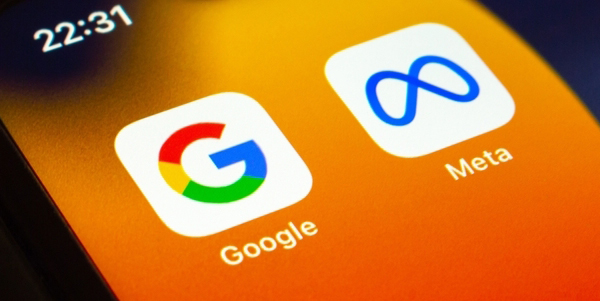 |
||||||||||||
|
||||||||||||
| EU Fines Meta $412 Million for Data Collection Violations |
 |
| On January 4, 2023, the EU fined Meta $412 million for violating data collection rules stipulated under GDPR. Meta includes language in its Terms of Service informing Facebook, Instagram, and WhatsApp users that it collects data for personalized targeting: “Our Privacy Policy explains how we collect and use your personal data to determine some of the ads you see and provide all of the other services described below. You can also go to your settings pages of the relevant Meta Product at any time to review your privacy choices about how we use your data.” To Meta, that Terms of Service language meets GDPR’s user consent requirement (one of five legal bases for processing data). Not so, ruled EU Regulators, because the approach more or less forces users to accept personalized ads as a condition to using these services. |
| The press and pundits rightly warn that this ruling will have far reaching consequences. To begin, Facebook, Instagram, and WhatsApp will now be required to ask EU citizens for explicit permission to use their data for targeting purposes. And they must provide a mechanism for allowing those citizens to change their consent at will. As The New York Times points out, when given the opportunity, many consumers opt out of data collection, as we’ve seen with the number of Apple users who barred advertiser tracking on their phones. If EU citizens follow the same pattern, Facebook can lose a substantial amount of revenue it earns through personalized ad targeting in the 27-country region. The other issue of concern is the Brussel’s Effect — i.e., the phenomenon of companies adopting the rules the EU enacts because it’s easier than maintaining different standards in each region. The Brussel’s Effect explains why websites in the U.S. implemented cookie banners in 2018 when GDPR went into effect. Will this ruling ultimately apply to all websites that rely on its terms of service to request user consent for data collection? Will the retailers and online marketplaces that have jumped on the retail media bandwagon be required to collect explicit permission from their users if they want to sell targeted advertising to their merchants? If yes, this can be a major disruption to the first-party data strategies of publishers and websites all over the world, especially if the Brussels Effect holds and sites find it easier to apply one standard to all users rather than try to distinguish non-EU citizens and the rest of the world. |
| Duopoly’s Monopoly Under Fire: Publishers Collect $100 and Move Full Speed Ahead |
 |
| The duopoly’s monopoly on the advertising ecosystem is dwindling as their combined revenue slipped below half of total U.S. digital ad revenue in 2022. According to projections by Insider Intelligence, this has not happened since 2014. In 2022, Google and Meta drew 48.4% of U.S. digital ad revenue, including 28.8% for Alphabet’s Google and 19.6% for Meta’s Facebook, Instagram, Messenger, and WhatsApp. Their peak shares were in 2017 – a combined ad revenue of 54.7% or 34.7% and 20%, respectively. With this being the fifth year-over-year decline for the duopoly, all signs point to a changing of the guard in the ad tech ecosystem. Experts predict that Google’s shares will decline to 26.5% this year, and by 2024, the duopoly’s combined shares can drop nearly 5% to 43.9%. According to research, Meta’s decline resulted from Apple’s IOS privacy opt-in policy change because it diminished their ad targeting capabilities. On the other hand, Google’s ad revenue dip stems from other competition rising up and gaining more shares. Amazon, Tik Tok, Microsoft, and LinkedIn have all bolstered their ad businesses. Are monopolies done for good, or will another major power step up? |
| While this data is a grim sign for big tech, the news potentially benefits publishers to dominate the global advertising ecosystem. The duopoly has hoarded around 85% of ad spend, but privacy changed the game for both parties. Publishers and advertisers relied on the duopoly’s inventory, but with their ad revenues in steady decline, this gives them leverage to boost their advertising businesses. “Big publishers have some very structural advantages in their ability to hedge against some of these risks for Google, Amazon, and Meta — but just more generally to build a durable source of revenue,” says Chris Kane, Founder, and President, of Jounce. “And, I think what sets up is that the open internet supply will get increasingly concentrated with a relatively small number of publishers.” On the other hand, some industry experts predict that another major power is coming to take over the ad business – Amazon. Amazon is being lauded as the “new and improved Google.” Amazon already ranks number three in overall digital U.S. ad spend because it built its ad revenue to $31 billion over six years. In addition, the company is projected to have year-over-year growth for at least the next three years. Keep a close eye on Amazon because publishers may gain more power, or they may gain a new leader. |
| Real Estate Brands Cut Ad Spend to Invest in the Metaverse |
 |
| Let’s face it, minus a few bright spots, ad spend is slowing down. Marketers are finding new ways to market their businesses. For real estate brands, this meant cutting their ad spend and investing in the Metaverse. Later this month, KB Home will build its first model homes in the Metaverse, allowing customers to visit and customize their virtual homes. According to their Chief Marketing officer, Amit Desai, the company believes this will enrich the user experience and build awareness for its real-life home-making capabilities. The market for real estate and housing is challenging. Therefore their marketing budget was affected. “We’re seeing companies tighten their belts in a variety of ways, and that’s going to force a lot of real estate companies to slim down and get creative with their marketing budgets,” says Tommy O’Shaughnessy, VP of marketing at Clever Real Estate. “Brands will focus on driving a measurable return on investment.” For many in the real estate industry and others, the investment in the Metaverse seems worthwhile. |
| Due to the challenging economy, advertisers of all industries are rethinking their business tactics.. For some, that means creating new partnerships or investing in CTV or podcasting. For others, that means experimenting with Web3 capabilities. While some believe that Web3 won’t affect the ad tech industry on a major scale, others find using Web3, such as the Metaverse or NFTs, beneficial for diversifying their marketing budgets. Web3 capabilities will continue to grow, but only with some hurdles, according to industry experts. “Metaverse’s greatest strength is its ability to build community,” says Jack Cameron and Billy Huang, the co-founders of Insomnia Labs. “The rise of the Metaverse won’t occur without hurdles, though. We can expect to see challenges in adoption and use cases. We need elevated virtual reality technology and much more robust avatar standards and architecture.” |
| Around the Water Cooler |
 |
| Tesla Fined $2.2 Million by South Korea over Alleged False Advertising South Korea’s antitrust watchdog will fine Tesla Inc. 2.8 billion won ($2.2 million) for alleged advertising law violations. Tesla falsely promoted and exaggerated the driving range and charging speed of its electric cars, as well as the estimated savings on fuel costs, South Korea’s Fair Trade Commission said in a statement Tuesday. The Elon Musk-led company changed the advertisement on its Korean-language website in February when the watchdog started investigating. (AdAge) The Year Ahead in Privacy and Your Data More data is everywhere, especially now that retailers are jumping into the ad networks game. And though the government is closer to fed data privacy law, it doesn’t mean companies will stop spying on you. Things will be more competitive for companies trying to get consumers to share their info. (Gizmodo) |









